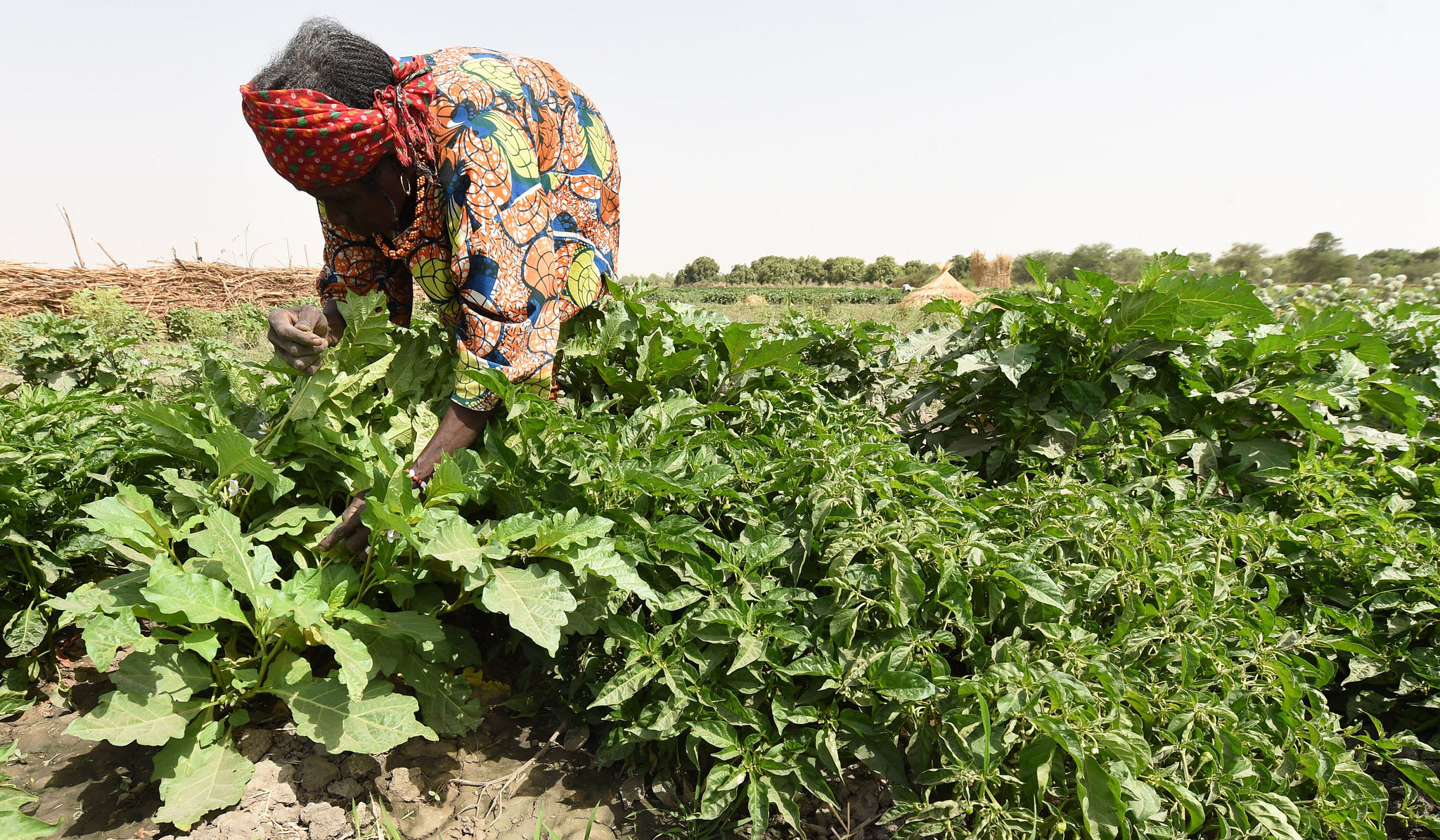The International Institute of Tropical Agriculture (IITA) has introduced an initiative designed to build resilience against climate change for rice and livestock systems in Nasarawa and Benue states, Nigeria. Funded by the European Union and German Corporation for International Cooperation (GIZ), this project aims to help farmers adapt to the unpredictable changes in climate.

At a recent event held at the Ta’al Conference Hotel in Lafia, Richardson Okechukwu, the Project Manager for IITA, discussed the details and significance of this project. He explained that a comprehensive study analyzing 60 years of weather data in Nasarawa state was conducted. The study also predicted weather patterns for the next 50 years. The results indicated an increase in erratic weather, including more frequent and severe flooding expected every three to four years.
Okechukwu emphasized the importance of farmers adopting diverse and climate-smart practices. He suggested that farmers should plant resilient and improved crop varieties to better withstand the changing climate. He noted, “Farmers need to be prepared for the changing climate, and this requires a coordinated approach by government, farmers, and other stakeholders.”
To ensure the successful implementation of these climate-smart practices, the project has invited various stakeholders to collaborate. These include state governments, the National House of Assembly, the Ministry of Agriculture, the Ministry of Environment, universities, and farmers’ associations. Okechukwu highlighted the necessity of government support in providing improved seeds and planting materials and the importance of mechanization to enhance productivity.
He said, “The government needs to support farmers in accessing improved seeds and planting materials, and mechanization is key to reducing the time spent on land preparation and increasing food production.” Furthermore, he stressed the need for tree planting to prevent soil erosion and the silting of rivers, noting that trees help stabilize the soil and protect waterways.
The overarching goal of the project is to promote climate-resilient agriculture and improve the livelihoods of farmers in Nasarawa and Benue states. Okechukwu expressed optimism about the project’s potential for widespread impact, helping farmers adapt to the changing climate.
Mr. Hugh Briggs, the European Union Representative, commended the Nasarawa State Government for providing a supportive environment for the project. He thanked the government, German Cooperation, Nasarawa State University, and other stakeholders for their dedication to the project. He remarked, “I’m very happy that the government is willing to do more. We’re excited about the project’s positive trend, which wouldn’t have been possible without the support of the government, university, and other stakeholders.”
Briggs also highlighted that the project has identified areas for improvement and positive outcomes, which the EU is eager to replicate in future initiatives. He said, “This project is a pilot project, and we want to learn from it. We’ll look at what this project has done, and we can learn from it.” Additionally, he praised the state government’s commitment to security, which has allowed farmers to return to their fields, aligning with President Bola Ahmed Tinubu’s priorities of security and food security.
Briggs announced that the EU plans to launch another project in Nigeria before the end of the year. This new project will focus on the production belt and marketing of agricultural products. He stated, “Nasarawa state is part of the production belt, and we’re confident that the successes we’re having in this project will be replicated in the EU support project.”
Mr. Altamirano Valdivia Ozman Franz, representing German Cooperation (GIZ), also praised the climate resilience project. In his remarks, Franz emphasized the importance of climate-smart agriculture in addressing the challenges posed by climate change. He stated, “The project has demonstrated the potential of climate-resilient agriculture in improving the livelihoods of farmers in Nasarawa and Benue states.” He added that GIZ is proud to support this initiative, which aligns with their goal of promoting sustainable development in Nigeria.
Franz commended the partnership between the Nasarawa state government, the EU, and GIZ for its crucial role in achieving the project’s objectives. He said, “The partnership between the state government, EU, and GIZ has been instrumental in achieving the project’s objectives.” He expressed optimism about continued collaboration to expand the project’s impact and promote sustainable agriculture in Nigeria.
In an interview, Mr. Samuel Meshin, the former chairman of the All Farmers Association in Nigeria, Nasarawa state, emphasized the need for more extension workers to educate farmers on environmental protection and sustainable farming practices. He expressed concern over environmental degradation due to harmful practices such as the use of chemicals for fishing, which affects water bodies and leads to river drying up.
Meshin also lamented the indiscriminate felling of trees in Nasarawa state, despite existing laws against it, and called for stronger enforcement mechanisms to protect the environment. He urged the government to establish proactive measures to safeguard the environment and promote sustainable agriculture practices. He stated, “The government needs to take decisive action to protect our environment. We need extension workers to educate farmers on sustainable practices, and we need stronger laws to prevent environmental degradation.”
During the event, a panel of experts in agriculture and climate change convened to discuss the impact of climate change on farming practices. The consensus among the experts was clear: climate change is real, and it’s time to change the narrative and pattern of farming. They emphasized the need for farmers to diversify their agricultural practices and adopt smart agriculture methods to mitigate the effects of climate change.



